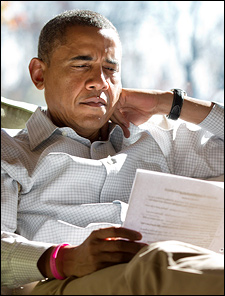In what will probably become the closest of the 2013 elections, significant action is already occurring in the open Virginia governor’s race. Since this state is the only one in the nation that still imposes a one-term limit on its chief executive, the odd-year election is always incumbent-less and thereby competitive. Next year’s campaign will be no exception.
Already, the Republican nomination situation is coming into focus. Clearly understanding that he could not win majority support in a statewide nominating convention against the more conservative Attorney General Ken Cuccinelli, Lt. Gov. Bill Bolling is again dropping plans to run for governor — this time with bad blood. Four years ago, Bolling stepped aside to give then-AG Bob McDonnell a clear shot at winning the nomination.
Objecting to the Republican Party of Virginia’s decision to replace a primary election with a convention, Bolling is not only exiting the governor’s race but says he will retire as lieutenant governor, too. “Under normal circumstances, I would be open to the possibility of running for another term as lieutenant governor, but I would not be interested in running on a statewide ticket with Mr. Cuccinelli,” he stated in a parting quote. Bolling’s reluctant action will now give Cuccinelli the opportunity of becoming the consensus Republican candidate.
On the Democratic side, former national committee chairman Terry McAuliffe, who fared poorly in the party’s gubernatorial primary four years ago losing to eventual nominee Creigh Deeds 50-26 percent, is indicating he will be back for another run. Former one-term Congressman Tom Perriello (D-VA-5) is also a potential Democratic candidate.
NOTES:
NC-7 Recount
Only one county remains to be re-canvassed in one of the closest House races in the country, the North Carolina contest between Rep. Mike McIntyre (D-NC-7) and state Sen. David Rouzer (R). When the recount began, McIntyre’s lead was 655 votes. Through the current portion of the almost completed process, the congressman has actually increased his lead by eight votes to a margin of 663 tallies. It is only now a matter of time before McIntyre is awarded an official victory. Expect this Wilmington-anchored 7th District to be a major Republican target in 2014.
New Hampshire Senate
Already, the first 2014 Senate poll has been conducted. Public Policy Polling (Nov. 14-15; 1,018 New Hampshire registered voters) surveyed a hypothetical pairing between first-term Sen. Jeanne Shaheen (D) and former Sen. John E. Sununu (R). The results stake the incumbent to a 53-42 percent advantage. There is no indication that Sununu will run again, but PPP often tests the most well-known political figures against incumbents before a field of actual challengers comes to the forefront. Sen. Shaheen’s job approval is 51:36 percent favorable to unfavorable.




